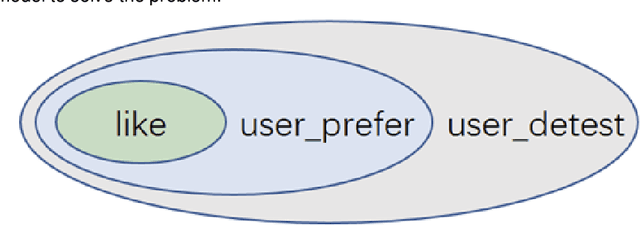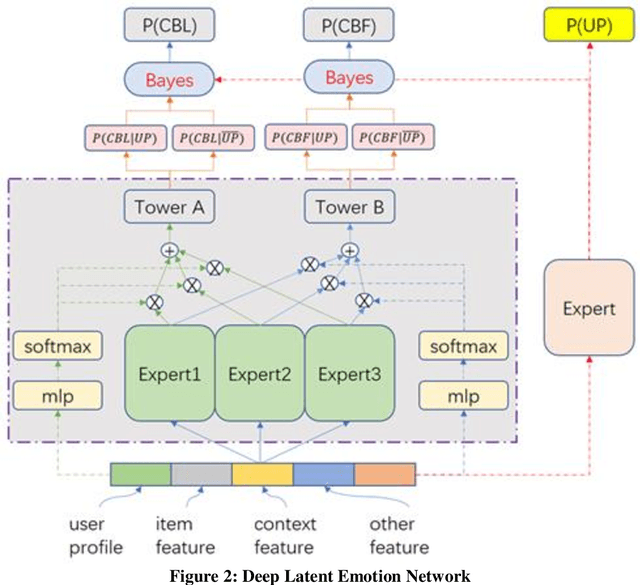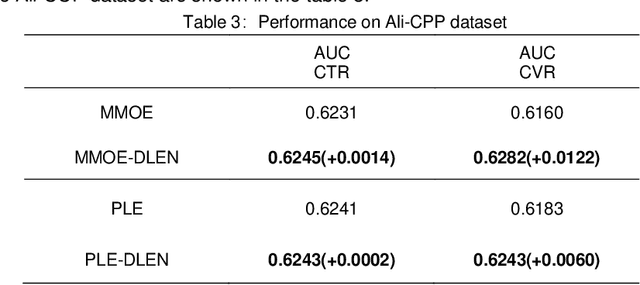Deep Latent Emotion Network for Multi-Task Learning
Paper and Code
Apr 18, 2021



Feed recommendation models are widely adopted by numerous feed platforms to encourage users to explore the contents they are interested in. However, most of the current research simply focus on targeting user's preference and lack in-depth study of avoiding objectionable contents to be frequently recommended, which is a common reason that let user detest. To address this issue, we propose a Deep Latent Emotion Network (DLEN) model to extract latent probability of a user preferring a feed by modeling multiple targets with semi-supervised learning. With this method, the conflicts of different targets are successfully reduced in the training phase, which improves the training accuracy of each target effectively. Besides, by adding this latent state of user emotion to multi-target fusion, the model is capable of decreasing the probability to recommend objectionable contents to improve user retention and stay time during online testing phase. DLEN is deployed on a real-world multi-task feed recommendation scenario of Tencent QQ-Small-World with a dataset containing over a billion samples, and it exhibits a significant performance advantage over the SOTA MTL model in offline evaluation, together with a considerable increase by 3.02% in view-count and 2.63% in user stay-time in production. Complementary offline experiments of DLEN model on a public dataset also repeat improvements in various scenarios. At present, DLEN model has been successfully deployed in Tencent's feed recommendation system.
 Add to Chrome
Add to Chrome Add to Firefox
Add to Firefox Add to Edge
Add to Edge